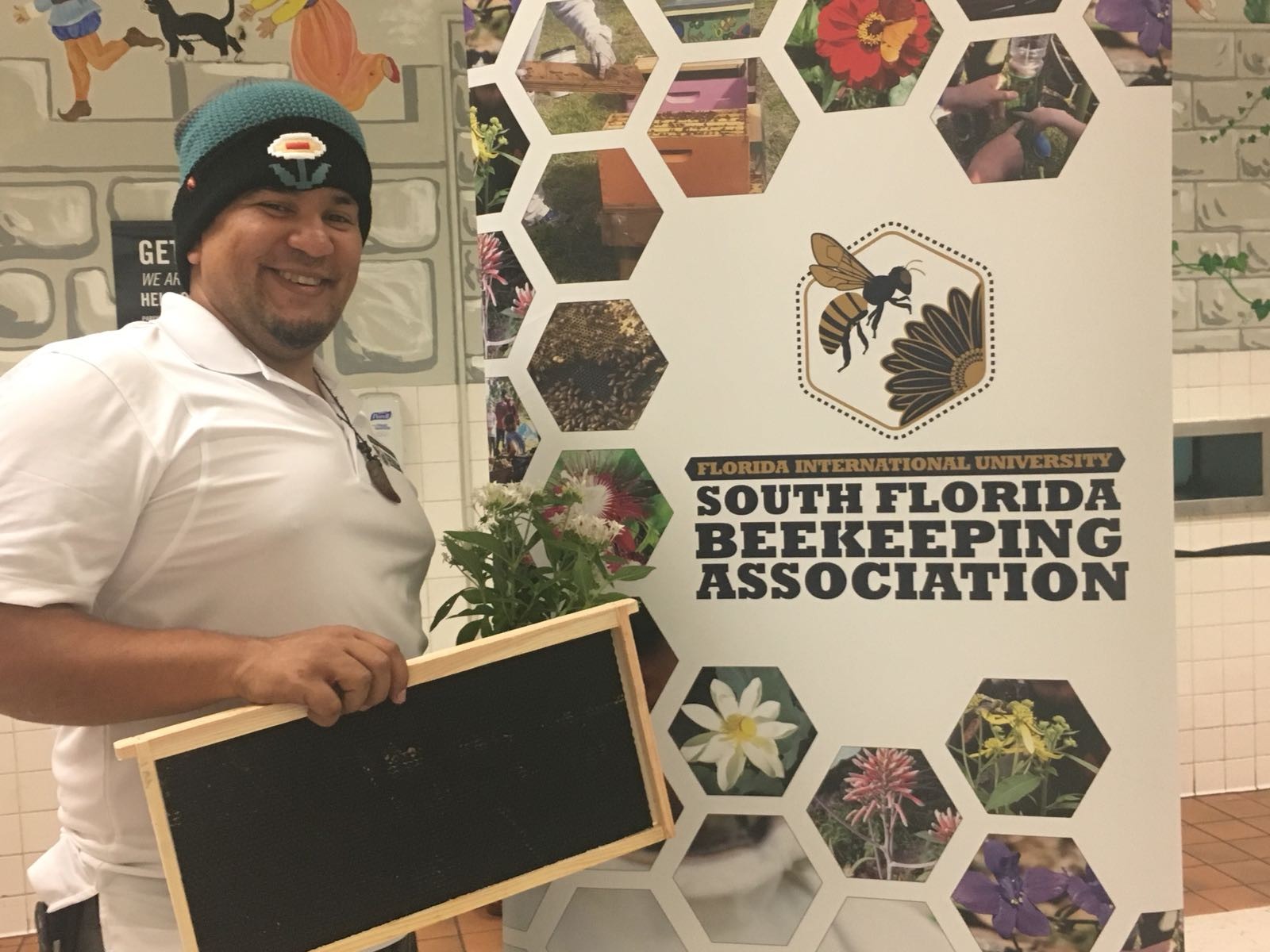We caught up with the brilliant and insightful David Riera a few weeks ago and have shared our conversation below.
David, thanks for joining us, excited to have you contributing your stories and insights. Let’s kick things off with talking about how you serve the underserved, because in our view this is one of the most important things the small business community does for society – by serving those who the giant corporations ignore, small business helps create a more inclusive and just world for all of us.
Most of South Florida is interconnected by and through underserved (under-resourced) communities, when we (you the readers) consider that most of the written/published histories of Bee Keeping as a science and as well as an art form in North America predominately indicates/highlights the work of white men and if we are lucky a few white women we would think that people of color, Indigenous, African, Arabic, and Asian did not have a continue to have a guiding, educational, philosophical, and stewarding hands in the efforts to protect bees and mutipled other ecologically and economically beneficial pollinators (of which bees are just one of the pollinators). South Florida Beekeepers Association is dedicated to our work with and through the community to protect pollinators, practices and pass-on (to the younger generation[s]) the art, science, and advocacy of be-ing in relation with bees and numerous pollinators. While our communities faces gentrification, housing insecurity, educational instabilities, employment, food, and climates crises left and right we are unfied, motivated, and inspired on the wings of bees, butterflies, and bats do our hope take flight time, and, time, and again.
We do not truly regonize ourselves as a “brand” persay but more as a reciprocal movement, this matters to us and all our members across many hives (or communities) because reciprocity is relationalities which seek to and build stronger more resilient bond between humans and other-than humans (like both the seen and unseen natural worlds around each and everyone of us). One of the parts of this movement is going beyond just a surface buzz, and really bringing the therapeutic intersection into the experiential learning process of keeping bee (or better said, of build a relationship with bees and by extension the world around you). As a veteran, I invite my brothers and sisters especially those battling post-traumtic stress syndrome to participate and learn to keep bees and to truly emerse themselves in the buzz of the work. The veteran community might not seem to be underserved but if you pull a few thread you all will see that bee-ing in a santized white room with others seeking help is not really helpful. What veteran who have learned and volunteered with us have said, “through working with the bees healing happens at a much greater and different pace, like if the vibrations of a million micrometered wings beating to buzz simultaneously centers me (stress and all) and releases me in a comforting way”.
To South Florida Beekeeping all our members and partners this is just one of the ways we do not only serve our communities but are of service to those trying to get their buzz-on.
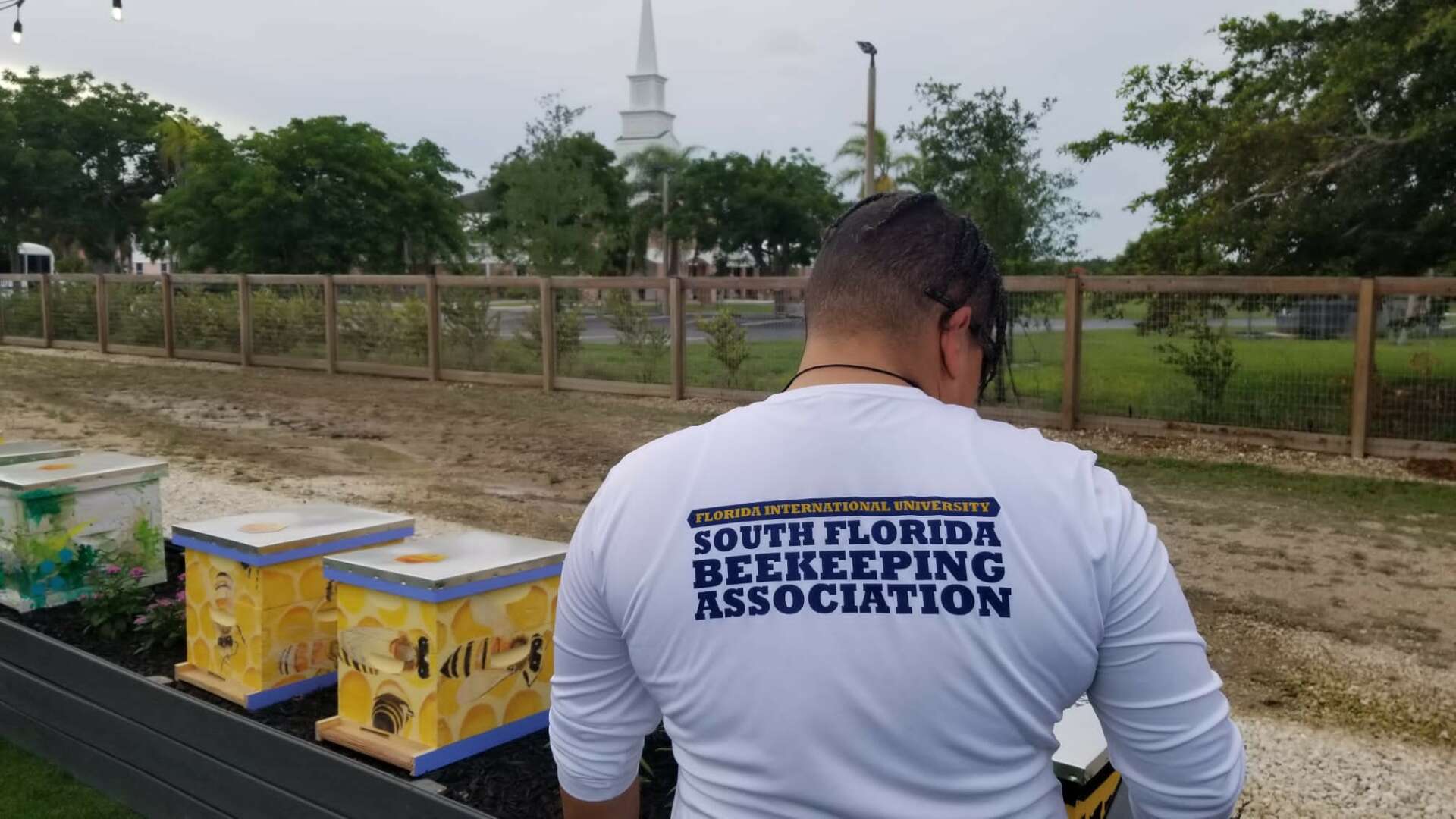
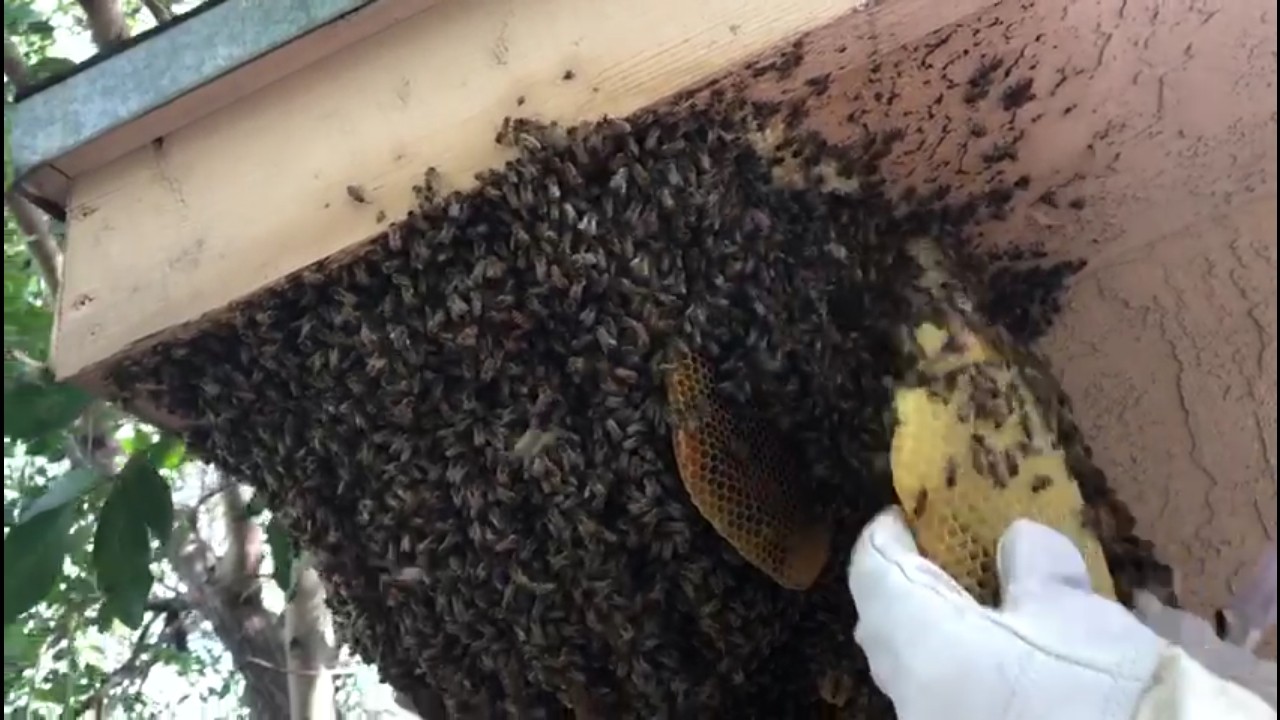
As always, we appreciate you sharing your insights and we’ve got a few more questions for you, but before we get to all of that can you take a minute to introduce yourself and give our readers some of your back background and context?
I am David Riera, one of the founders of the South Florida Beekeeping Association (SFBA) at the beginning of 2016 at Florida International University (FIU) where I served as the first President. Our efforts and community continue to buzz around FIU but in 2019 we officially expanded into the community as many of our student members began to become “certified beekeepers” and either open up their own satellite endeavors or incorporate beekeeping into their existing work.
In the fall of 2015, I was fortunate to bee involved in a few beekeeping workshops sponsored by local beekeepers and FIU, I felt different doing beekeeping and being immersed in the hands-on process of keeping bees just like I do when I dive into the ocean. It felt then like it does today simultaneously bringing my inner-peace while completely stoking the flames of my curiosity.
Some of the features that we/I are most proud of at SFBA are our members, our community mentors (beekeepers from all flights of life from hobbyists to third generationists) pitching in and contributing to the growth and learning of our hives. We are truly proud of lifting up our people of color, queue algunas veces hablan/speak in a different way, but are still understood when doing the dance of the bees, with the bees, and for the bees. We stand strong through our community education and outreach efforts, equipping community members and familias on the importance of bees and polllinators in general.
Many “clients” are miss informed about the cost/maintenance of bees and apiaries in general, when we receive a call to come rescue a hive or a bee swarm we need the community (clients and all) to realize there is not such thing as “Free-Bees” but we also ensure that the bees are taken care of an not simply used, abused, and exterminated, like I said are primary movement is based on reciprocity and relationality.
In our industry, we need to bee better to each other, and not simply look at the science and art of beekeeping and pollinator protection as purely economical but embrace the ecological and metaphysical even. The discipline and the business space needs to be more inclusionary and more diverse, we need mentors from all colors, cultures, and creeds to pass-on the knowledge, the wisdom, and stories of not just their bees but bees and pollinators in general.
If we/I are by far the most proudest of our work/brand, is that South Florida Beekeeping was a student-led and student organized effort which has bee-come a growing movement bridging intergenerational peoples and spaces especially as we continue to serve our communities and work with our committed partners to host apiary sites for educational and conservation purposes providing accessibility and a way-forward for anyone to bee-come involved.
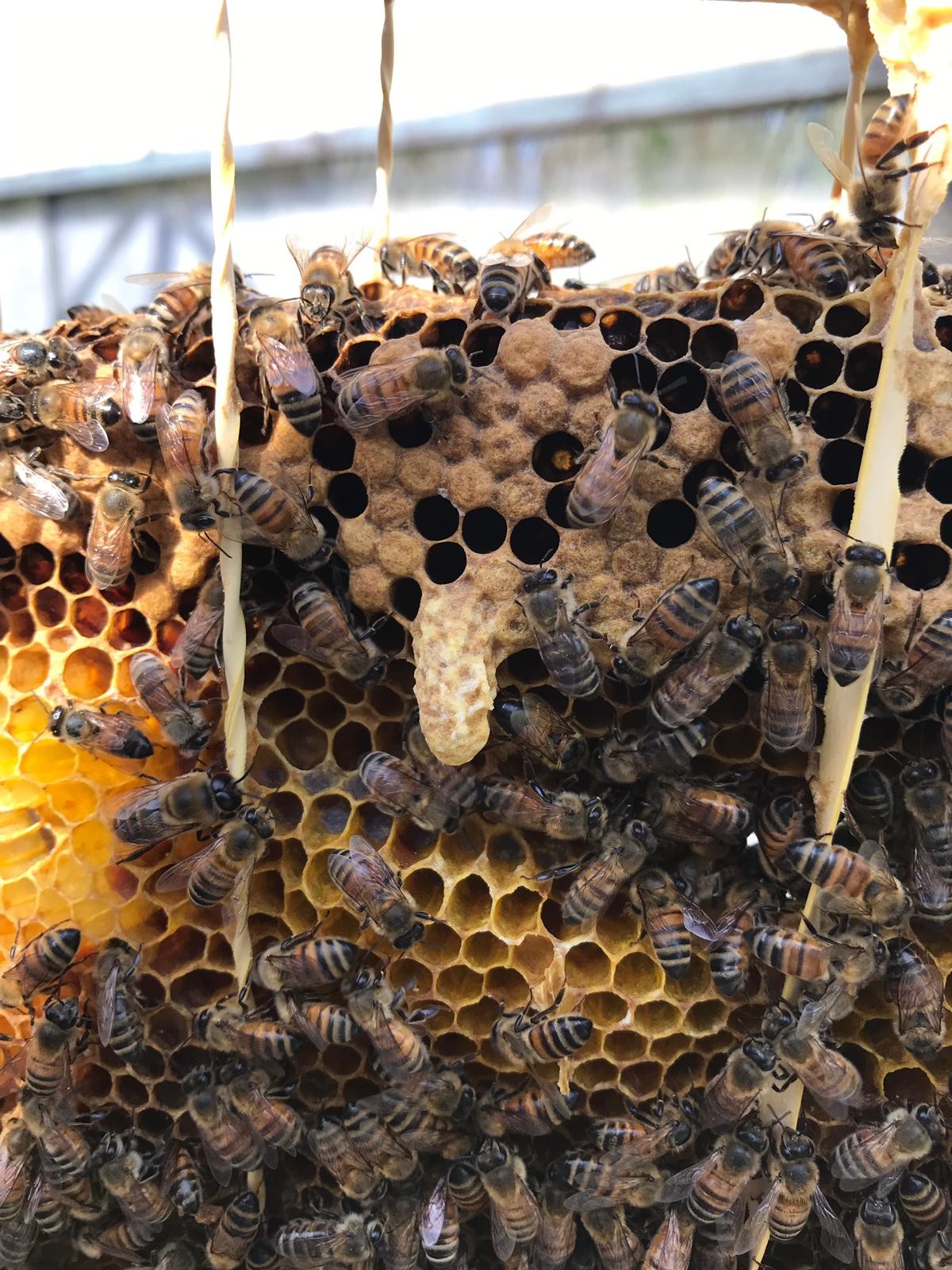
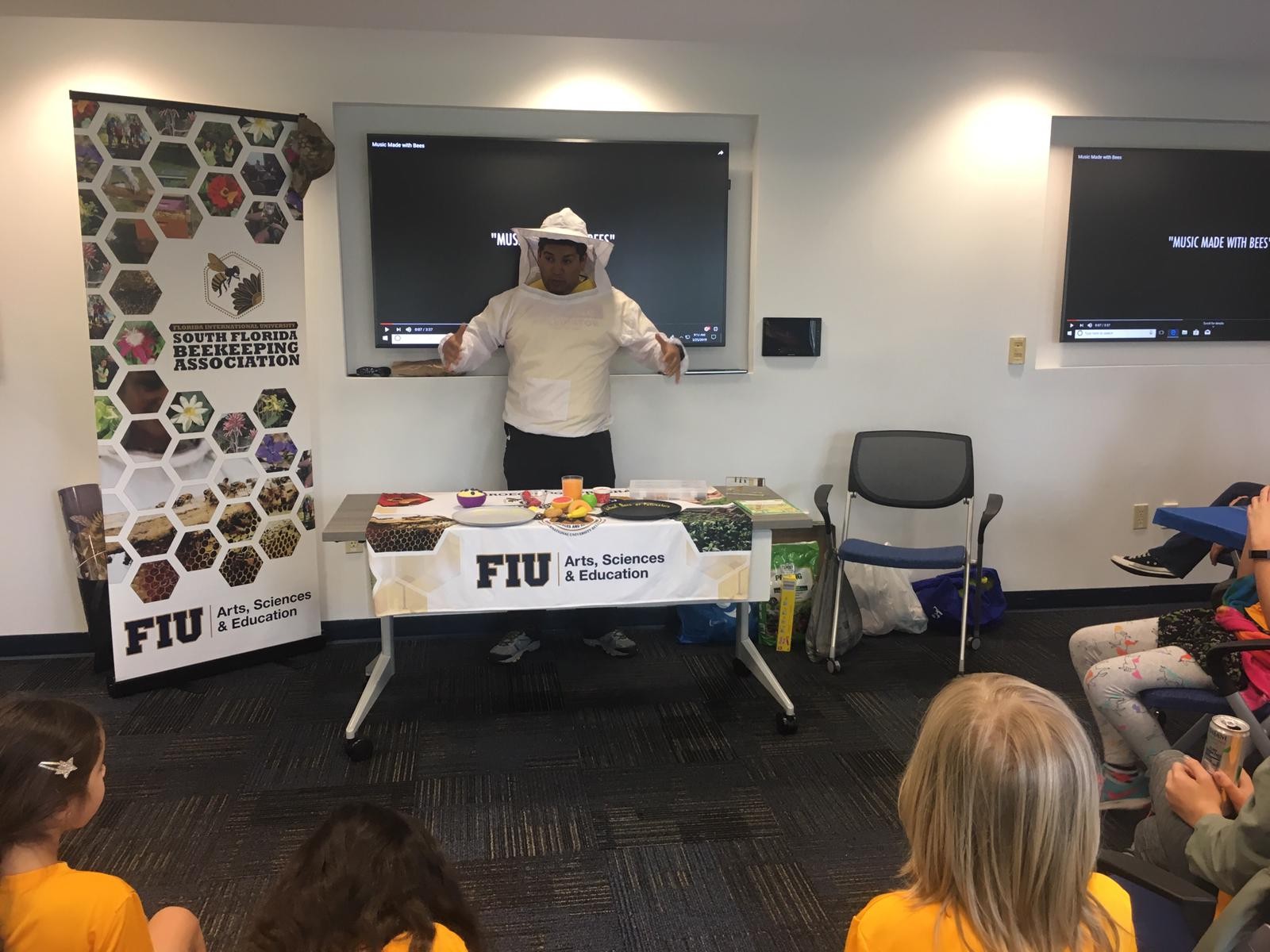
Can you share a story from your journey that illustrates your resilience?
In 2020 as the COVID pandemic protocols began to take effect students (with community support) continued to work with the Office of the President at FIU to build an apiary finally on campus while being told that our organization could no longer do any events or activities in=person (sponsored or otherwise). I was not the president at this juncture, I had moved onto the role of Graduate Advisor and Chair of Education and Outreach.
This year brought us one of our first opportunities to work with a phenomenal young lady from the Florida Tropical Girl Scout troop who I worked with to co-develop a bee and pollinator stewardship curriculum that not only won her the Girl Scouts Gold Award but became an actual girl scout badge that future girl scout work for to earn (again intergenerational hope through education and experiential actions). We also co-constructed a “pollinator in box” which provided a set of activities for K-12 learners and familias to take part in while bringing awareness and conservation into the palms of their hands and moreover into their own backyards.
The pandemic held promises to break our HIVE apart and all it truly did was help us grow and grow stronger we have and continue to do. We might not have the apiary on campus because of politics but we/I was very honored to be featured in a museum in British Colombia as part of an exhibit and movement by the Honey Bee Center, title Beekeepers from Around the World.
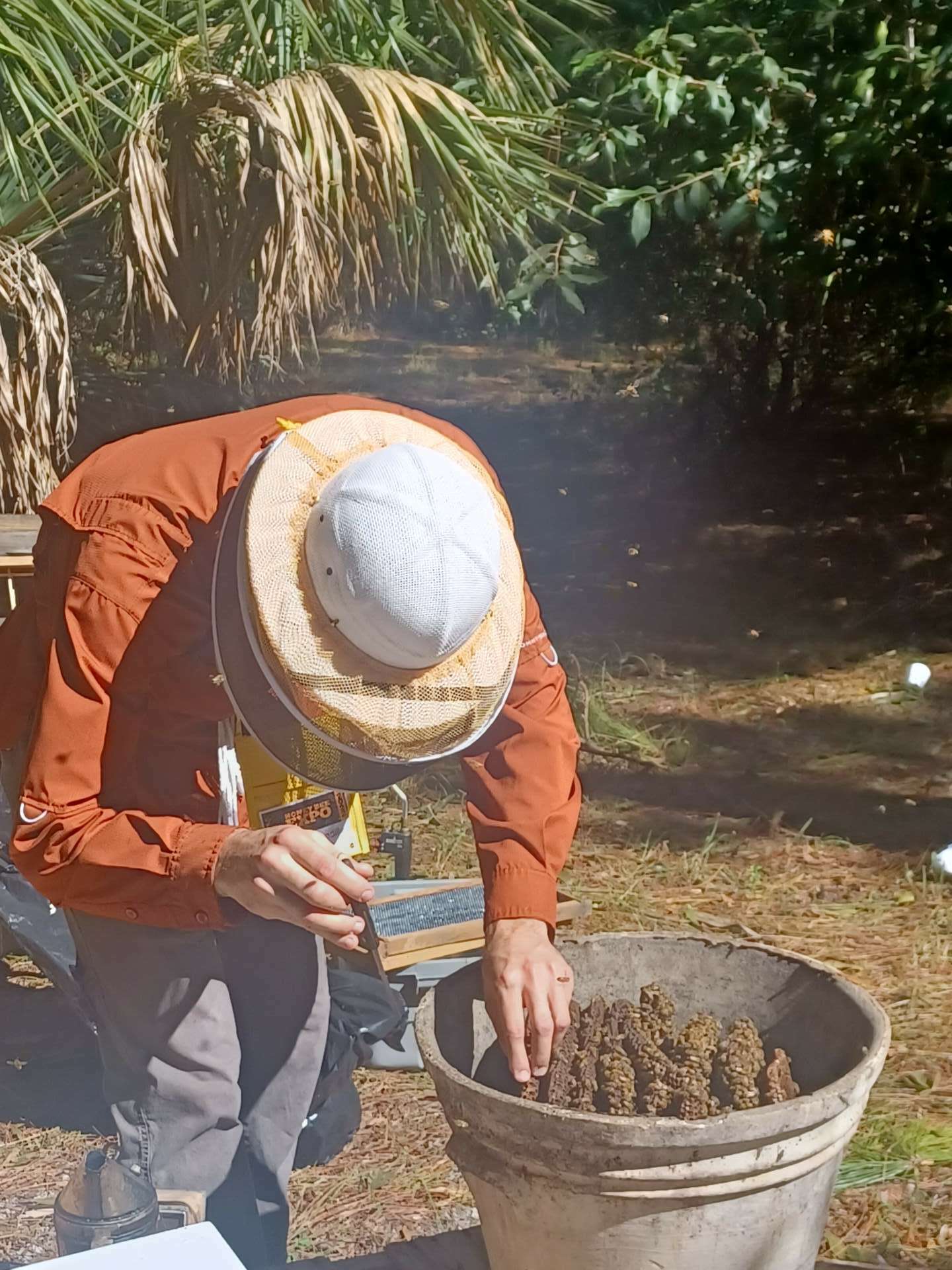
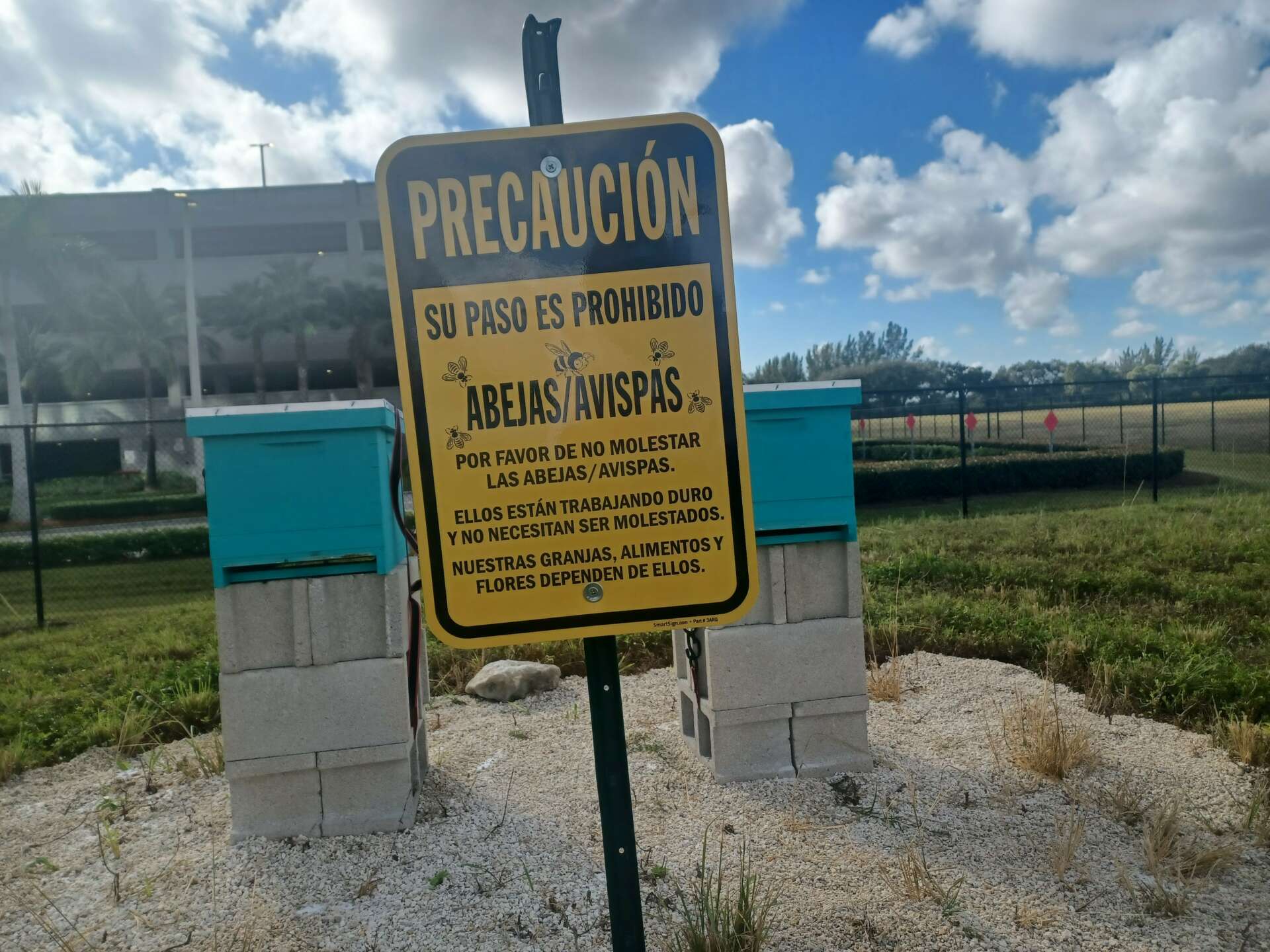
Where do you think you get most of your clients from?
Again we at South Florida Beekeeping Association, do not look at the community we serve and our partners as “clients” even though there is professional decorum, but more through our organization and members’ commitment and acts of reciprocity feel and view that clients are just members we have not had a chance to meet, buzz, and share some honey with. Once we do new folxs come to us either through word-of-mouth/ recommendations or simply through an internet search.
For all intensive purposes keeping bees a larger industry with not a lot of folxs willing or available to support it, making beekeepers and Api-lovers from all over a dynamic network dedicated to these small but mighty bee-ings. Always recall who are your clients… i.e. which communities do you serve and hopefully they will help guide your “boots-on-the-ground” efforts, roots keep your work growing and strong.
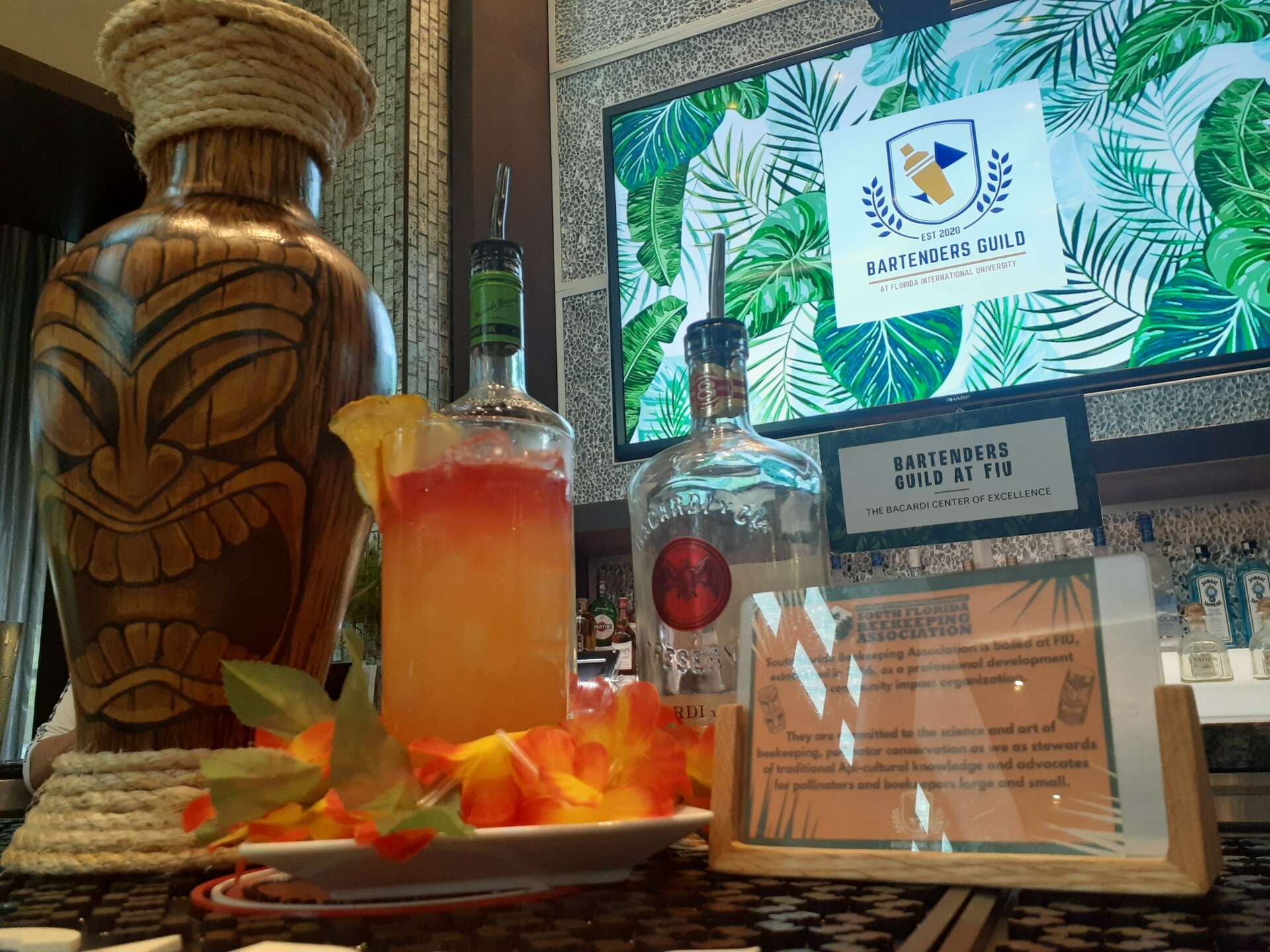
Contact Info:
- Website: https://fiu.campuslabs.com/engage/organization/south-florida-beekeeping-association
- Instagram: https://www.instagram.com/sflbeekeeping/?hl=en
- Youtube: https://www.youtube.com/watch?v=eT9NGxJSHnw


